Matrix model of CPO dynamics
CPO evolution is modelled as a matrix problem involving the state vectors of \(n(\theta,\phi)\) and \(b(\theta,\phi)\).
Recall that \(n(\theta,\phi)\) and \(b(\theta,\phi)\) may either be understood as the grain number-density or mass-density distribution in orientation space, the integrals of which give the total number of grains (\(N\)) or the bulk density (\(\rho\)), respectively. Because the models of crystal processes included in specfab conserve the normalization, the two different views produce the same result.
Glacier ice
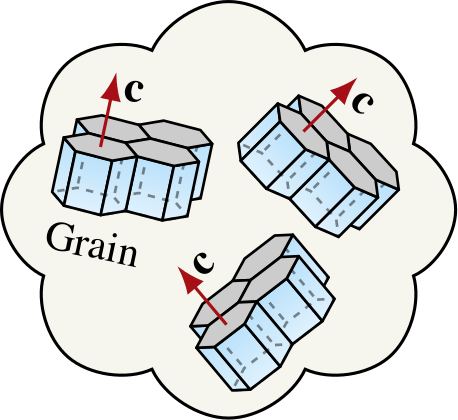 |
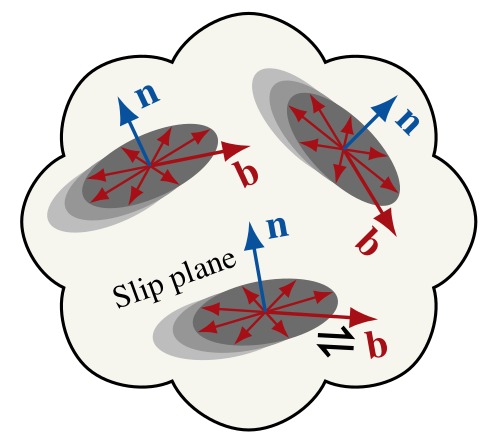 |
For polycrystalline glacier ice, \(n(\theta,\phi)\) is simply the distribution of (easy) slip-plane normals since \({\bf n}={\bf c}\). Given the expansion
CPO evolution can be written as a matrix problem involving the state vector
such that
where the operator (matrix) \({\bf M}\) represents the effect of a given CPO process, which may depend on stress, strain-rate, temperature, etc.
The total effect of multiple processes acting simultaneously is simply

Validation
If the CPO is rotated into an approximately rotationally-symmetric frame about the \(z\)-axis, then only \(n_l^0\) components are nonzero. This conveniently allows validating modelled CPO processes by comparing modelled to observed correlations between, e.g., the lowest-order normalized components \(\hat{n}_2^0 = n_2^0/n_0^0\) and \(\hat{n}_4^0 = n_4^0/n_0^0\). The below plot from Lilien et al. (2023) shows the observed correlation structure (markers) compared to the above CPO model(s) for different modes of deformation, suggesting that modelled CPO processes capture observations reasonably well.
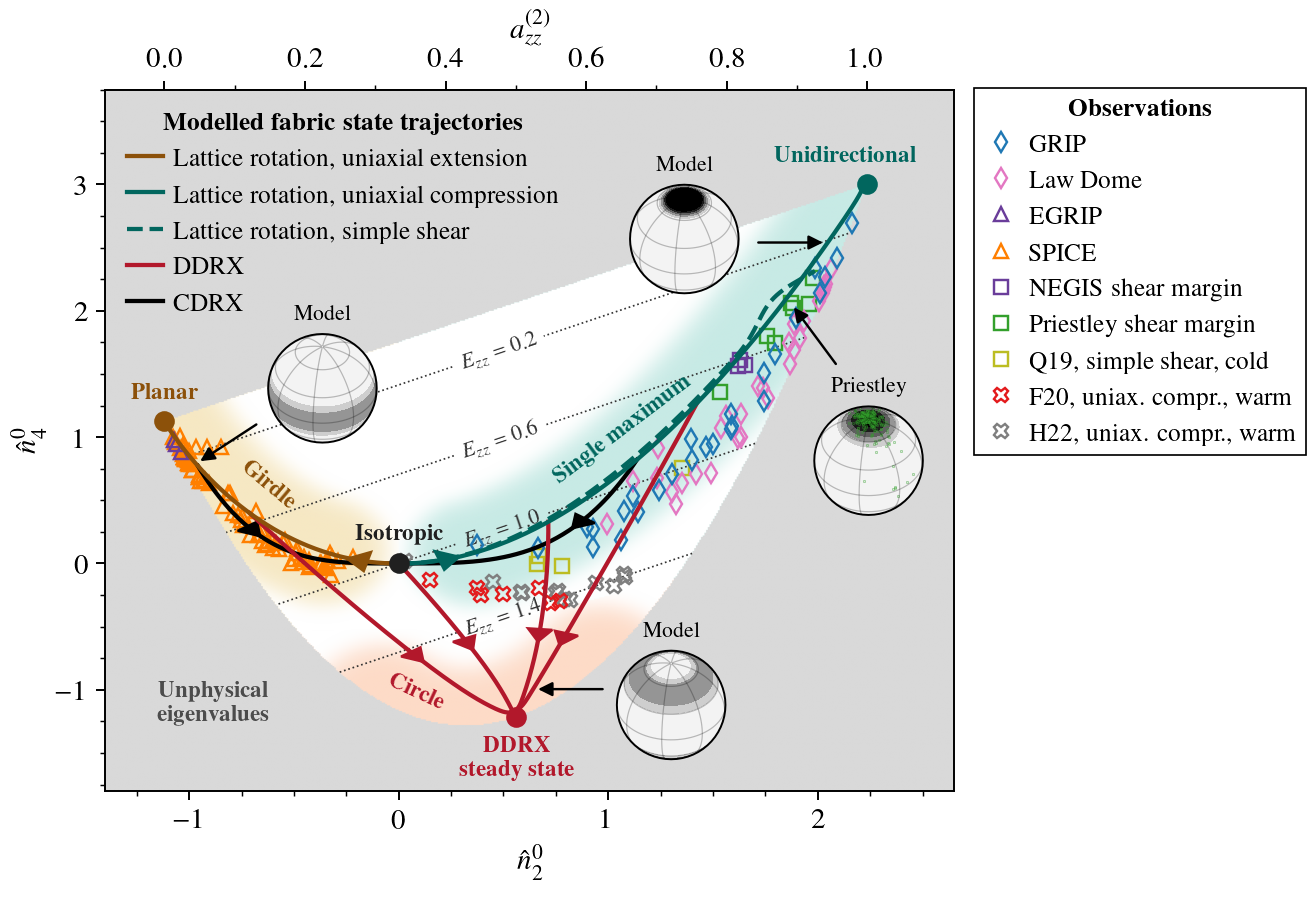
Olivine
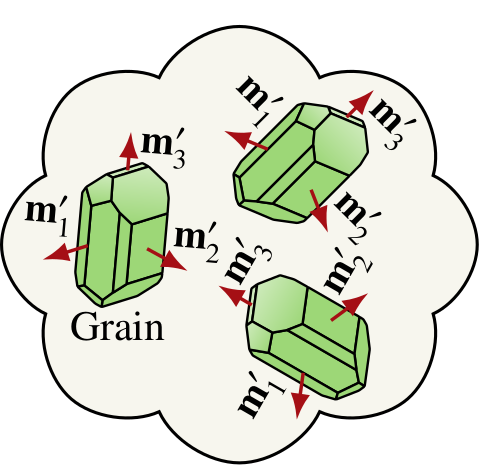 |
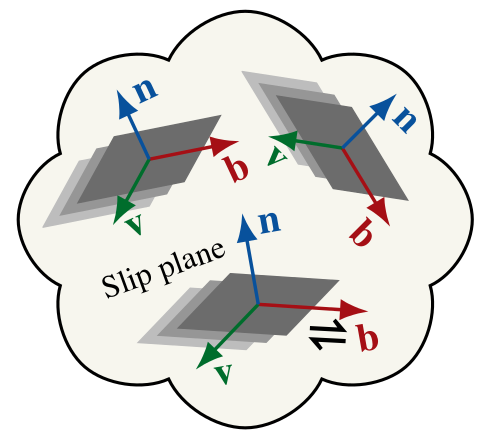 |
For polycrystalline olivine, the distributions \(n(\theta,\phi)\) and \(b(\theta,\phi)\) refer to certain crystallographic axes (\({\bf m}'_i\)) depending on the fabric type; i.e. thermodynamic conditions, water content, and stress magnitude that control which of the crystallographic slip systems is activated.
Given the expansions
CPO evolution can be written as two independent matrix problems involving the CPO state vector fields
such that
where the operators (matrices) \({\bf M}_n\) and \({\bf M}_b\) represents the net effect of CPO processes, similar to the above example for glacier ice.
Supported crystal processes
So far, only lattice rotation is supported for olivine.
Validation
Validation is provided in Rathmann et al. (2024) similar to that above for glacier ice.